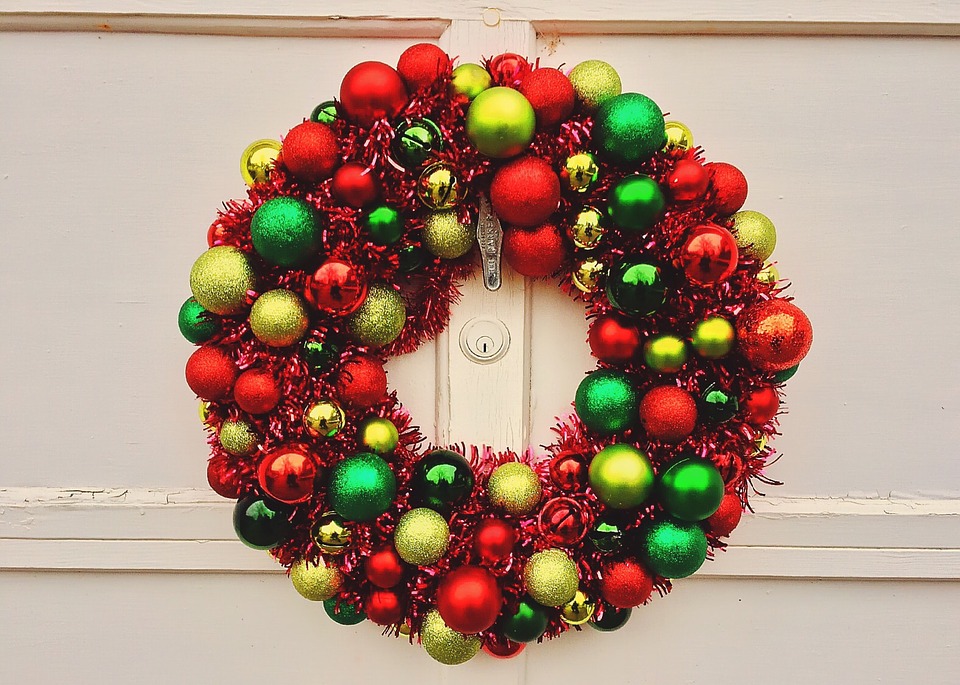 Photo from Pixabay.
Photo from Pixabay. Every December, for many Jews, constantly hearing “Merry Christmas” is an uncomfortable reminder of our outsider status in American society – that no matter how integrated we are, in some ways we’re still excluded. Hurtful childhood memories of feeling left out of holiday fun never seem to go away.
So for some of us, the more inclusive “Happy Holidays” reaffirms that Chanukah (and by extension Passover and Rosh Hashanah) are also fully American expressions of religious faith. As such, we encourage our offices to turn Christmas parties into holiday parties, and our employees to avoid “Merry Christmas” when interacting with customers.
Now, for several years, conservative Christians (led by Fox News) have complained of an imaginary “War on Christmas” – aggressive secularists oppressing Christians by watering down the season with generic greetings and pareve department store sales.
Many Jews, then, are caught in the middle, wanting equal inclusion in the joyous holiday season without sounding like soldiers in the War on Christmas.
Certainly, on an interpersonal level it makes no sense to pick fights with people whose greetings are heartfelt and unaware. Some Jews have well-honed retorts like “Guess again!” or even “Happy Chanukah.” Others just smile and say thank you, or offer a Merry Christmas in return.
But Christians saying Merry Christmas to Jews (or to everyone) is problematic.
I don’t go around telling everybody “Happy Birthday” on October 9th, and I don’t tell my British friends “Happy Independence Day” on July 4th. If a lesbian told all her office colleagues “Happy Pride” on the day of the parade, it might seem a little aggressive. And here in Israel, I would be a real jerk telling Arabs the traditional greetings “have an easy fast” on Yom Kippur or “have a kosher and happy holiday” on Passover.
We wish people well for their holidays, not ours. It’s basic courtesy.
Indeed, for many gentiles, learning how their Merry Christmas-es are sometimes perceived by friends and neighbors is enough to make them switch to Happy Holidays-es. They may be surprised, confused, or even defensive, but not hostile.
Sometimes hostility comes only from other Jews for whom the season’s greetings are touchy in the other direction. They get aggressive toward other members of the Jewish community who don’t welcome “Merry Christmas.”
The greeting “doesn’t bother” them at all, they insist – an entirely reasonable stance, particularly regarding day-to-day interactions with Christians who celebrate the holiday. But when their defense of Christmas means denouncing fellow Jews who want to keep December public school parties generic, for example, they’re crossing a line.
It doesn’t matter why so many American Jews are made uncomfortable by Merry Christmas – that’s how they genuinely feel. And telling someone to change their feelings (as opposed to their minds) is rarely successful. It is incontrovertible that hundreds of thousands of American Jews prefer Happy Holidays, and personal accounts that implicitly or explicitly shame them for hypersensitivity are unkind.
Interestingly, that kind of chastisement seems to come from the right as often as it comes from the left, with Orthodox and Reform, conservative and liberal American Jews sharing testimonials of enjoying the songs and the lights. That’s fine, but not everyone does. (I enjoy hearing Christmas music at the grocery store, but less so when, inevitably, I start singing along.) One person’s comfort with a practice doesn’t make it illegitimate for others to object.
In what other matters of communal disagreement does one group of Jews tell another what to feel, as opposed to what to think or do? The Kotel? Intermarriage? Support for Israel? Who is a Jew?
The same Jews who holiday-shame their co-religionists wouldn’t dream of telling an African-American she’s wrong for objecting to Confederate statues, or demanding transgender people stick with their biological pronouns.
This subject is particularly touchy because a common trope in Christmas mythology – expressed in countless TV specials and stage productions – involves bringing “the Christmas spirit” to people who don’t have it. And nobody wants to be a Scrooge or a Grinch.
Look, Jews who enjoy the Christmas season should do so. But scolding those who don’t is disrespectful – and not very Christmas-y, to boot. (Look over the comments on this essay on Facebook and elsewhere and you’ll see what I’m talking about.)
Personally, I rarely encounter this problem, because I spend the season in virtually Christmas-free zones: the British Jewish learning extravaganza Limmud and my home in Israel. Please don’t tell me I’m wrong to feel less comfortable when I’m in the United States during the month after Thanksgiving. When it comes to coping with the complications of being an American Jew, nobody’s feelings are wrong.
David Benkof is a frequent contributor to the Jewish Journal. Follow him on Twitter (@DavidBenkof) or Facebook, or E-mail him at DavidBenkof@gmail.com.





















 More news and opinions than at a Shabbat dinner, right in your inbox.
More news and opinions than at a Shabbat dinner, right in your inbox.